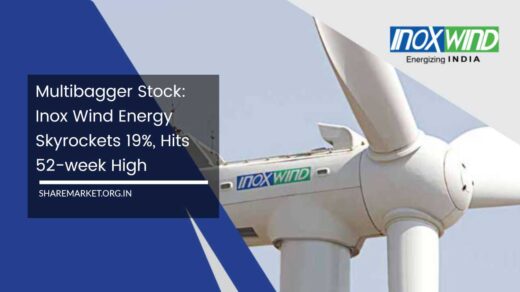How to Find the Best Mutual Fund Scheme

Best Mutual Fund Scheme
How to Find the Best Mutual Fund Scheme in India
Understanding Mutual Funds
Before diving into how to find the best mutual fund scheme, it’s crucial to have a clear understanding of what mutual funds are. In essence, a mutual fund is a financial vehicle that pools money from multiple investors to create a diversified portfolio of securities.
These securities can include stocks, bonds, or a mix of both, depending on the fund’s investment strategy. The collective capital is managed by professional fund managers who make investment decisions on behalf of the investors.
This structure allows individuals to invest in a diversified portfolio without needing extensive knowledge of the financial markets.
Key Factors to Consider When Choosing a Mutual Fund Scheme
Choosing the right mutual fund scheme can be a complex decision, as it involves assessing several key factors to ensure that the fund aligns with your financial goals and risk tolerance. Here’s a detailed look at these factors:
- Investment Objectives and Risk ToleranceShort-Term vs. Long-Term Goals: Your investment objectives significantly influence the type of mutual fund that is suitable for you. If you are aiming for short-term goals, such as saving for a vacation or a major purchase, you may want to consider funds that offer quick returns and lower risk. Conversely, if you are planning for long-term goals, such as retirement or funding a child’s education, you might opt for funds that offer higher returns over an extended period, even if they come with higher risk.
Risk Appetite: Your comfort level with market fluctuations plays a crucial role in determining which mutual fund to choose. Funds vary widely in terms of risk, with some investing in high-risk, high-return assets like stocks, while others focus on safer, more stable investments like bonds. Understanding your risk tolerance—whether you can handle volatility or prefer steady, predictable returns—will guide you in selecting a fund that matches your investment style.
- Fund TypeEquity Funds: These funds invest primarily in stocks and are designed to provide high returns over the long term. They offer substantial growth potential but come with increased risk due to market volatility. Equity funds can be categorized further into large-cap, mid-cap, and small-cap funds, each with varying levels of risk and return potential.
Debt Funds: Debt funds invest primarily in fixed-income securities such as bonds, government securities, and corporate debentures. They are generally less volatile compared to equity funds and provide relatively stable returns. Debt funds are suitable for investors looking for income and lower risk.
Hybrid Funds: Hybrid funds, also known as balanced funds, invest in a mix of equity and debt instruments. They aim to balance the risk and return by providing a moderate level of growth potential while maintaining some degree of stability. Hybrid funds are ideal for investors seeking a balanced approach between risk and reward.
- Fund Manager’s Track RecordConsistency: Evaluating the track record of a fund manager is critical in determining the potential success of a mutual fund. Look for managers who have consistently delivered strong performance over a significant period. A manager’s ability to consistently outperform the market or their benchmark index can be a good indicator of their skill and effectiveness.
Investment Philosophy: Understanding the fund manager’s investment philosophy and approach is equally important. Each manager has a unique strategy and methodology, whether it’s value investing, growth investing, or a combination of approaches. Ensure that the manager’s investment philosophy aligns with your financial goals and risk tolerance.
- Expense RatioThe expense ratio is the annual fee that the fund manager charges to manage the mutual fund. It is expressed as a percentage of the fund’s average assets under management. A lower expense ratio means that a smaller portion of your investment is used to cover management fees, allowing more of your money to be invested in the fund’s underlying securities. When comparing funds, consider the expense ratio as part of your decision-making process to ensure cost-effectiveness.
- Fund SizeLiquidity: Larger mutual funds tend to offer better liquidity, making it easier to buy or sell units without significantly impacting the fund’s price. However, excessively large funds can sometimes face challenges with flexibility, as managing a larger portfolio may become cumbersome. It’s important to balance the need for liquidity with the fund’s size and investment strategy.
- Past PerformanceBenchmark Comparison: Assessing a fund’s past performance is an important step, though it should not be the sole factor in your decision. Compare the fund’s performance against its benchmark index to gauge how well it has performed relative to similar investments. While past performance is not indicative of future results, it can offer insights into the fund’s performance consistency and management quality.
- Tax ImplicationsCapital Gains Tax: Different types of mutual funds have varying tax treatments. For instance, equity funds may be subject to capital gains tax on short-term and long-term holdings, while debt funds have their own tax implications. Understanding the tax implications of investing in a mutual fund is essential for managing your tax liabilities effectively. Consider how the fund’s tax treatment aligns with your overall financial and tax planning strategy.
Additional Tips for Selecting the Best Mutual Fund Scheme
- Diversification: Diversification involves spreading your investments across various asset classes to reduce risk and enhance potential returns. Rather than investing all your funds in a single mutual fund, consider diversifying your investments across different funds and asset classes. This approach helps mitigate the risk associated with any single investment and can provide more stable returns.
- Regular Review: Periodically reviewing your mutual fund investments is crucial for ensuring that they continue to align with your financial goals and risk tolerance. Changes in your personal circumstances, market conditions, or fund performance may necessitate adjustments to your portfolio. Regular reviews allow you to make informed decisions and keep your investments on track.
- Seek Professional Advice: If you are uncertain about which mutual fund to choose or how to create a diversified portfolio, consulting a financial advisor can be beneficial. A qualified advisor can provide personalized recommendations based on your specific financial situation, goals, and risk tolerance. They can help you navigate the complexities of mutual fund investing and make informed decisions.
Popular Mutual Fund Categories in India
In India, mutual funds are classified into various categories based on their investment focus and strategy. Here are some popular categories:
- Large-Cap Funds: Large-cap funds invest in well-established, financially sound companies with a strong market presence. These companies typically have a large market capitalization and a proven track record. Large-cap funds offer relatively stable returns and are suitable for conservative investors seeking steady growth.
- Mid-Cap Funds: Mid-cap funds focus on mid-sized companies that have the potential for significant growth. These companies are generally in a growth phase and may offer higher returns compared to large-cap stocks, albeit with higher risk. Mid-cap funds are suitable for investors willing to take on more risk for the potential of higher returns.
- Small-Cap Funds: Small-cap funds invest in emerging companies with smaller market capitalizations. These companies often have high growth potential but come with increased volatility and risk. Small-cap funds can offer substantial returns but are best suited for investors with a high risk tolerance and a long-term investment horizon.
- Index Funds: Index funds aim to replicate the performance of a specific market index, such as the Nifty 50 or Sensex. They offer low-cost exposure to the broader market and are passively managed. Index funds are ideal for investors seeking market-average returns with lower fees.
- ELSS (Equity Linked Savings Scheme): ELSS funds are equity-oriented mutual funds that offer tax benefits under Section 80C of the Income Tax Act. They provide an opportunity to invest in equity markets while enjoying tax deductions on investments up to a specified limit. ELSS funds come with a lock-in period of three years, making them suitable for long-term investors.
Final Remarks
Selecting the best mutual fund scheme in India requires a thorough understanding of your investment goals, risk tolerance, and the characteristics of different mutual funds.
By considering factors such as investment objectives, fund type, expense ratio, fund manager’s track record, and tax implications, you can make informed investment decisions that align with your financial goals.
Remember that mutual fund investments are subject to market risks, and past performance is not indicative of future results.
Conducting detailed research, diversifying your investments, and consulting with a financial advisor can help you navigate the complexities of mutual fund investing and enhance your chances of achieving your financial objectives.
Note: This article provides general information and is not intended as financial advice. For personalized investment recommendations, it is essential to consult with a qualified financial advisor who can assess your individual needs and guide you accordingly.

















